The trade for hill lambs is buoyant at present, with prices running on average €10 to €15 per head above the corresponding period in 2020.
The lift in the trade is great to see for primary producers who have regularly missed out on a cut of higher market returns for lambs brought through to finish in recent years.
Scottish Blackface ram lambs are selling in the main from €2.15/kg to €2.30/kg for light and plainer-quality types with heavier lambs and those with a larger frame and potential to finish easier to French-specification carcase weights (over 17kg) selling to €2.40/kg to €2.50/kg.
Horned and polled crossbred ram lambs are trading from €2.55/kg to €2.75/kg, with lamb quality again having a major say on price.
Ewe lambs are attracting higher levels of competition from farmers with surplus grass and, as such, are securing a premium on price.
Polled crossbred ewe lambs are trading in many cases from €2.80/kg to €3/kg for good-quality lighter lambs weighing 30kg to 35kg, while crossbred lambs exhibiting more continental breeding and offering strong breeding potential are pushing prices in excess of €3/kg.
‘We never had more men looking for lambs’ – Dan McCarthy
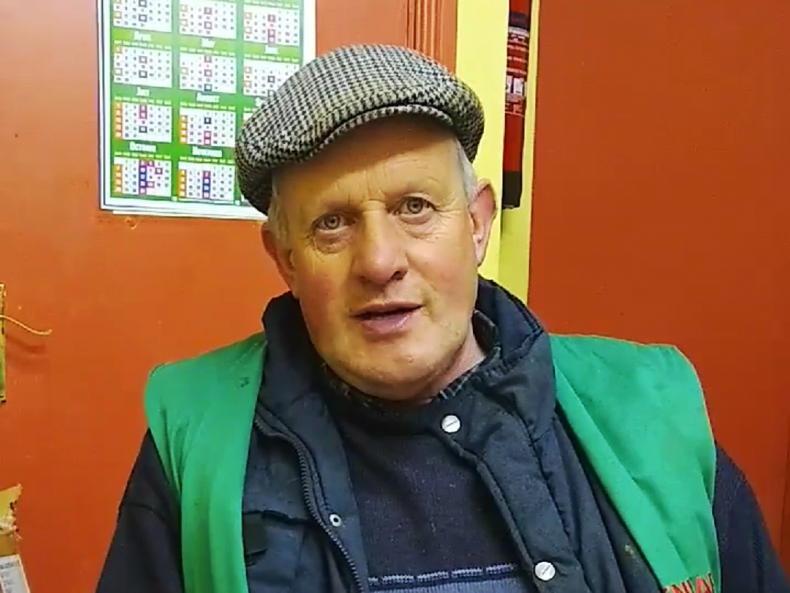
Dan McCarthy is Kenmare Mart manager.
Kenmare Mart manager Dan McCarthy says sales are currently bubbling with optimism from customers.
“We never had more customers looking for lambs. We had over 4,000 sheep on offer each week over the last month and had no trouble finding homes for them. It is not that long ago that after a sale you would be pulling your hair out trying to finalise deals and find homes for unsold sheep.
“Light mountain lambs are making €2.30/kg. Heavier lots are making €2.50/kg to €2.60/kg and crossbred male lambs are making from €2.60/kg to €2.80/kg. There is great life altogether in the ewe lamb trade, helped by strong grass supplies, with quality Cheviot and Scotch lambs making over €3/kg.
“This is being driven by more men running hoggets dry and, unfortunately, that trade has stagnated with grand hoggets selling in recent weeks from €120 to €140. I think if factory prices are strong again in spring, there will be more people looking at this sales option.
“Overall the trade is positive and it is great to see hill sheep farmers selling store lambs getting a share of the higher prices, as God knows, it is all needed with the way that input costs are rising.”
‘Every store lamb finisher has returned full of optimism’ – Jonathan O’Sullivan
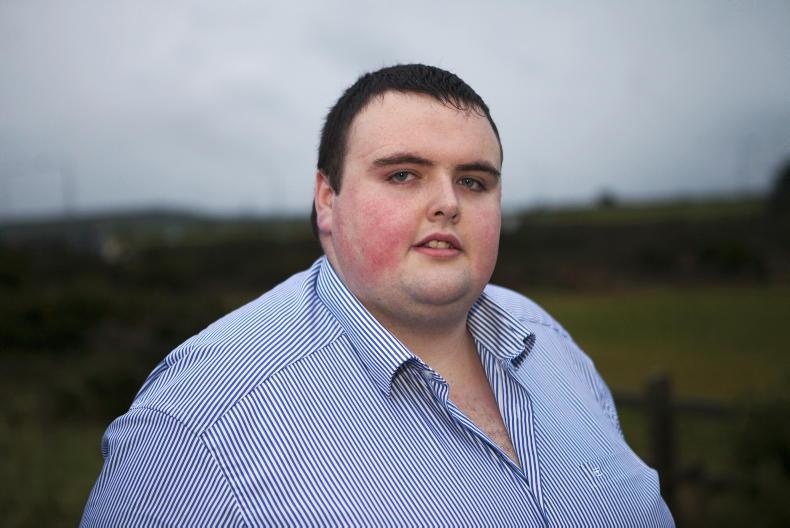
Jonathan O'Sullivan is manager at Cahir Mart.\ Donal O'Leary
Cahir Mart manager Jonathan O’Sullivan says the trade for store lambs is being helped by more customers looking to purchase lambs.
“I was looking through the buyers’ sheets from last Friday’s fortnightly hill lamb sale and every customer specialising in finishing store lambs has returned this season.
“Finishers who marketed lambs this spring made good money and the strength of the finished lamb trade at present is also generating more optimism.
“In recent years, these finishers would be the main buyers but the strong grass supplies are creating more interest from a higher number of farmers buying small numbers, with this interest adding much more competition to the trade.
“It is great to see for hill sheep farmers who are doing a good job but are not set up to bring lambs through to finish and therefore have been at the mercy of the store lamb trade in recent years.
“These producers are getting a better return this year while there is still room for finishers to operate.
“We are seeing a similar situation with demand for lowland store lambs, with ewe lambs a particularly strong trade and trading anywhere from €2.80/kg to €3.25/kg in Tuesday’s general sheep sale.”
The trade for hill lambs is buoyant at present, with prices running on average €10 to €15 per head above the corresponding period in 2020.
The lift in the trade is great to see for primary producers who have regularly missed out on a cut of higher market returns for lambs brought through to finish in recent years.
Scottish Blackface ram lambs are selling in the main from €2.15/kg to €2.30/kg for light and plainer-quality types with heavier lambs and those with a larger frame and potential to finish easier to French-specification carcase weights (over 17kg) selling to €2.40/kg to €2.50/kg.
Horned and polled crossbred ram lambs are trading from €2.55/kg to €2.75/kg, with lamb quality again having a major say on price.
Ewe lambs are attracting higher levels of competition from farmers with surplus grass and, as such, are securing a premium on price.
Polled crossbred ewe lambs are trading in many cases from €2.80/kg to €3/kg for good-quality lighter lambs weighing 30kg to 35kg, while crossbred lambs exhibiting more continental breeding and offering strong breeding potential are pushing prices in excess of €3/kg.
‘We never had more men looking for lambs’ – Dan McCarthy

Dan McCarthy is Kenmare Mart manager.
Kenmare Mart manager Dan McCarthy says sales are currently bubbling with optimism from customers.
“We never had more customers looking for lambs. We had over 4,000 sheep on offer each week over the last month and had no trouble finding homes for them. It is not that long ago that after a sale you would be pulling your hair out trying to finalise deals and find homes for unsold sheep.
“Light mountain lambs are making €2.30/kg. Heavier lots are making €2.50/kg to €2.60/kg and crossbred male lambs are making from €2.60/kg to €2.80/kg. There is great life altogether in the ewe lamb trade, helped by strong grass supplies, with quality Cheviot and Scotch lambs making over €3/kg.
“This is being driven by more men running hoggets dry and, unfortunately, that trade has stagnated with grand hoggets selling in recent weeks from €120 to €140. I think if factory prices are strong again in spring, there will be more people looking at this sales option.
“Overall the trade is positive and it is great to see hill sheep farmers selling store lambs getting a share of the higher prices, as God knows, it is all needed with the way that input costs are rising.”
‘Every store lamb finisher has returned full of optimism’ – Jonathan O’Sullivan

Jonathan O'Sullivan is manager at Cahir Mart.\ Donal O'Leary
Cahir Mart manager Jonathan O’Sullivan says the trade for store lambs is being helped by more customers looking to purchase lambs.
“I was looking through the buyers’ sheets from last Friday’s fortnightly hill lamb sale and every customer specialising in finishing store lambs has returned this season.
“Finishers who marketed lambs this spring made good money and the strength of the finished lamb trade at present is also generating more optimism.
“In recent years, these finishers would be the main buyers but the strong grass supplies are creating more interest from a higher number of farmers buying small numbers, with this interest adding much more competition to the trade.
“It is great to see for hill sheep farmers who are doing a good job but are not set up to bring lambs through to finish and therefore have been at the mercy of the store lamb trade in recent years.
“These producers are getting a better return this year while there is still room for finishers to operate.
“We are seeing a similar situation with demand for lowland store lambs, with ewe lambs a particularly strong trade and trading anywhere from €2.80/kg to €3.25/kg in Tuesday’s general sheep sale.”






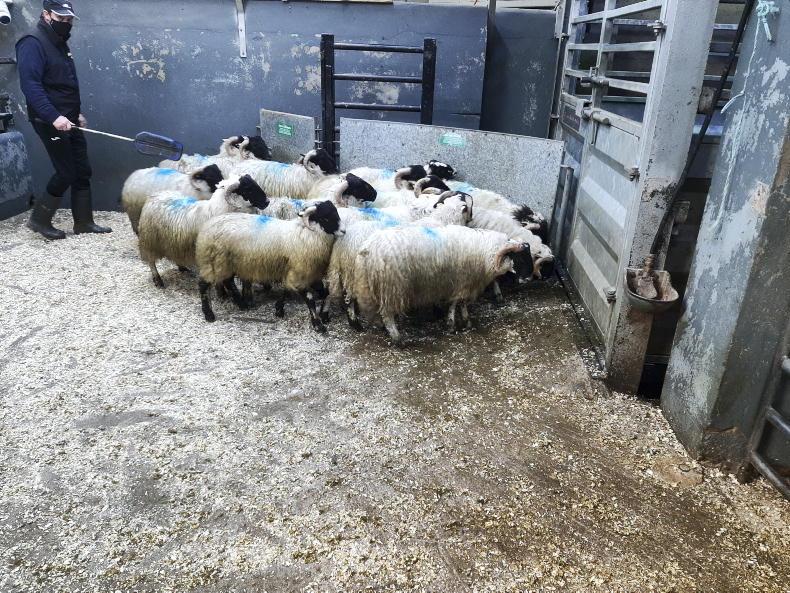
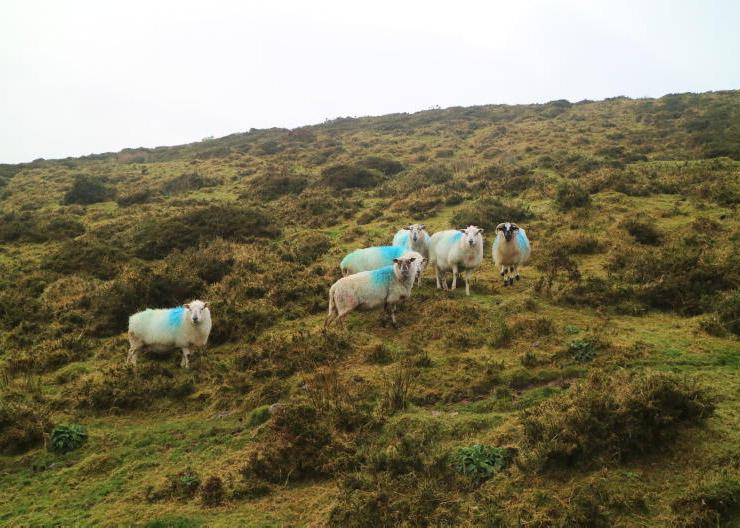


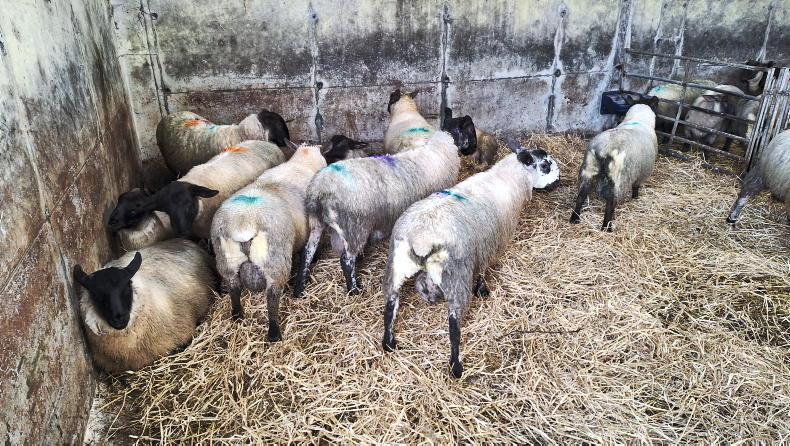
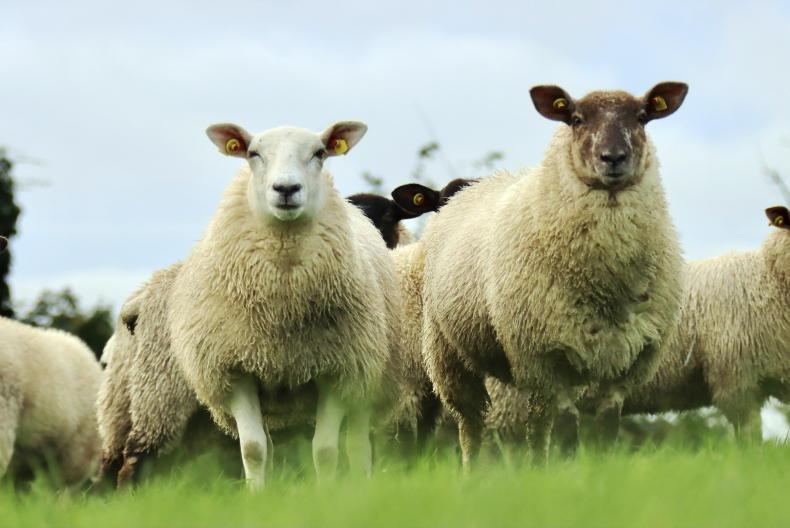
SHARING OPTIONS